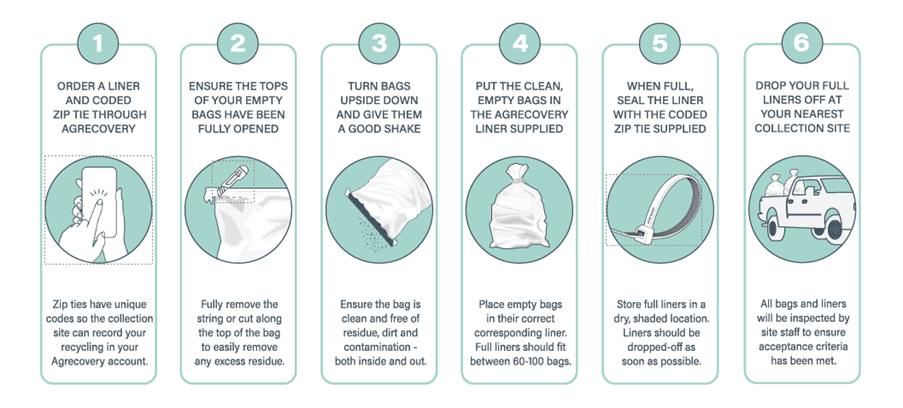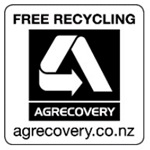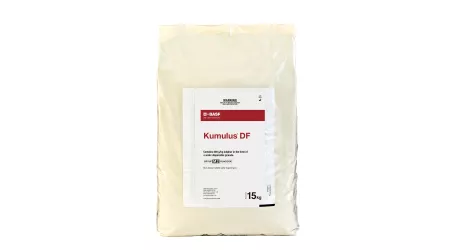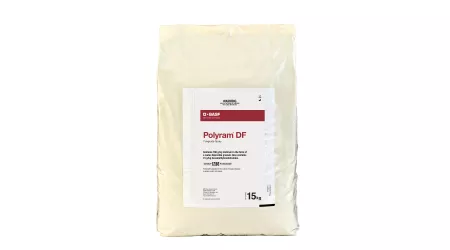Even as growers take a well-earned breather after finishing this latest bountiful harvest, they should be looking forward and thinking about clearing the decks in preparation for the next growing season.
A good start would be to deal with the pile of empty, triple-rinsed agrichemical containers that may have accumulated in a corner of the shed or yard. The Agrecovery scheme has been up and running for over 16 years now and is well supported by both growers and the agrichemical manufacturers. More than 4,300 tonnes of plastic have already been collected and recycled, and the scheme just keeps getting bigger – both in terms of the volume of plastic being processed and the variety of packaging it can handle.
Three years ago BASF and Yara New Zealand worked with Agrecovery to trial recycling the bags, which fungicides like Kumulus® DF and Polyram® DF are supplied in. The trials were successful, LDPE plastic bags from BASF and Yara were added to the Agrecovery recycling scheme and now other agrichemical, fertiliser and seed companies have now joined in. Bags that have been properly prepared (as shown in the graphic) can be collected into an Agrecovery liner for recycling.

BASF, the largest chemical producer in the world, has set a goal to be carbon neutral by 2050. As long ago as 2018, BASF had already reduced its carbon emissions by more than 50% compared to 1990. By establishing a Circular Economy Programme – increasingly using recycled and renewable feedstocks, shaping new material cycles and creating new business models – BASF aims to process 250,000 metric tons of recycled and waste-based raw materials annually, replacing fossil-based raw materials by 2025.
Every NZ grower can play a part in realising that sort of major environmental improvement just by choosing products in recyclable containers – like BASF’s groundbreaking yellow Ecopak containers, which use 20% less plastic and even have recyclable caps – and continuing to participate in the great work of Agrecovery. Look for the Agrecovery logo on our drums and bags!

ACVM registration numbers: Kumulus® DF #P003493, Polyram® DF #P002062. Read the registered label before use.


